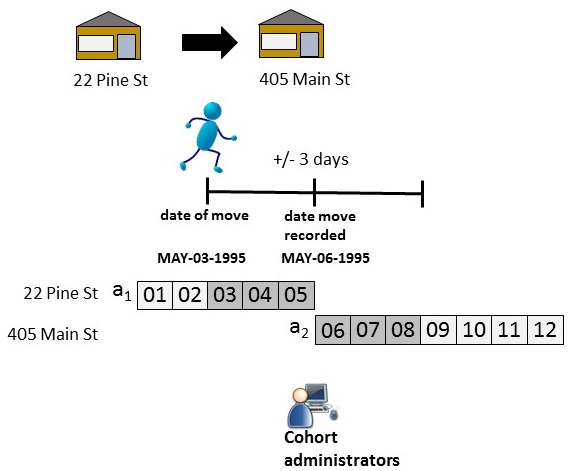Future development
by Kevin Garwood
As ALGAE continues to be used and adapted to support other projects, we will likely need to consider making improvements on the existing protocol. Below, we share our thoughts about ideas that could be used to make future releases.
Develop the concept of the proxy error
Currently, ALGAE's contention days are only produced when there is a gap or an overlap between successive address periods. However, a far more significant source of contention days for many projects would come from the lag time between when someone moved to an address and when they began living there.For example, consider the scenario shown in the diagram below. A study member decides to mail a change of address to the cohort facilities and move on May 3, 1995. Assume that it takes three days for a letter to reach the cohort offices. A cohort administrator opens the mail showing the change on May 6 and immediately updates the study member's record. The start date at a2 will be listed as May 6, but the actual move date would be May 3.

In future releases, it may be useful to clean the address periods, and then calculate a +/- X days that represents the lag between the date of a move and the date when it was reported. Applying the proxy error would create days of contention, whether or not they were covered by gap or overlap errors in the administrative data.
